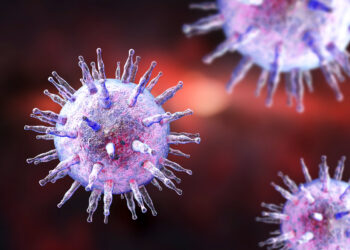PANDAS Audit & Sub-Group Data 2019
2nd November 2019
In October 2019 we audited 200 UK patients treated for PANDAS over the pevious 12 months. During this audit we identified 100 patients that had good laboratory data that in turn allowed us to develop a clinical model with 10 different sub-groups. These sub-groups were based on the laboratory findings along with the clinical features that the patients demonstrated. What we have found is that patients in different sub-groups appear to behave differently and it is important to treat the whole child in order to get the best improvement. An example is to treat any allergies that might be identified. This framework will be used to gather more information on patients treated over the next year when we will carry out our next audit. What is clear is that PANDAS is not just one homogenous condition and that while it is important to start treatment quickly, it is also important to gather the evidence of the different elements of a childs health to determine the right treatment pathway for that specific child.
The following table shows the different sub-groups:

The sub-group that we have labelled ” Type I” or classical PANDAS are those that have typical onset features with tics and/or OCD, urinary symptoms and/or eating disorder and which respond quickly to treatment. Our recommendation for this group is 2 weeks of treatment followed by 1 month of prophylaxis.
The other feature that has emerged as probably being underestimated is misophonia or distortion of sound that may appear to be very loud or which may elicit anxiety in the child. The classical example of this is when a child experiences exagerration of the sound of people eating.
The parents of children treated in the previous 12 months were also audited in October 2019. This audit shows that only 14% of GP’s were aware of PANDAS. This is however an improvement on the previous year (when only 10% of GP’s were aware of PANDAS). Hopefully, this change will accelerate over the next 12 months as we continue to try and raise awareness of these conditions.



The data also showed that 45% of patients received up to 4 weeks of initial antibiotic treatment and that prophylaxis (preventative treatment) was not given in a third.
Investigations are important to help direct treatment. The following graphs show the investigations done in this population and the treatments used. Remember that in the UK we have a lack of IVIG so this does not feature prominently in our data.

 We have made huge progress with the investigation and treatment of PANDAS in the UK over the past 2 years and this data will serve as a basis for further refining the treatment protocols that we are developing.
We have made huge progress with the investigation and treatment of PANDAS in the UK over the past 2 years and this data will serve as a basis for further refining the treatment protocols that we are developing.
Posted in: PANDAS by Dr Tim Ubhi




Comments
dani
2022-03-09 16:53:24
My grand daughter gas recently been diagnosed with PANDAs. So far the initial and increased steroid treatment hasn't worked. CBT has been suggested by the consultant. Do you know of a CBT counsellor in North London/Barnet area that deals with PANDAs? thank you.
Steph Hammond
2021-02-28 19:54:33
Thank you for taking the time to investigate this awful, life changing condition. We are so glad we came across you and have booked an online appointment with you for later this week.